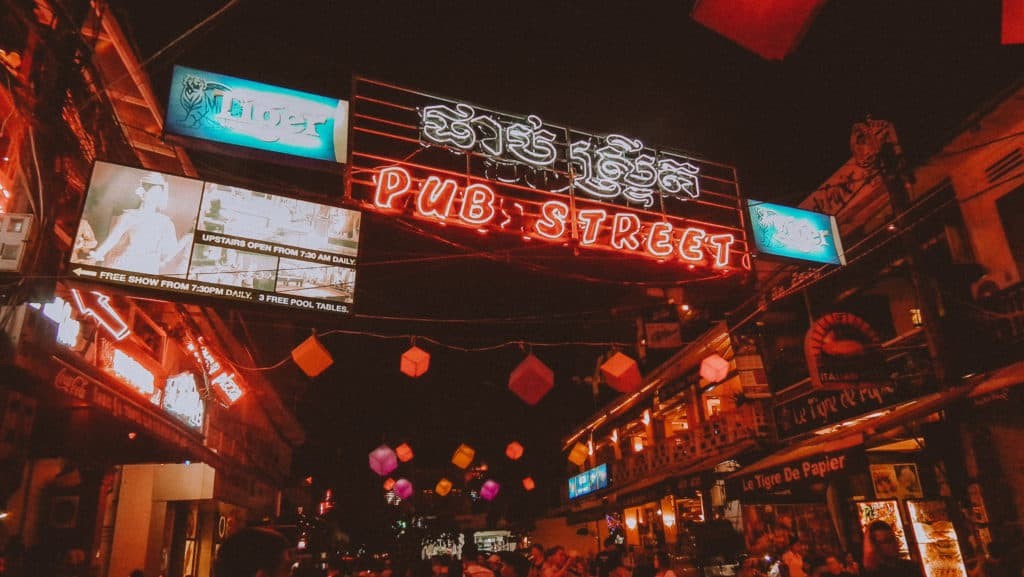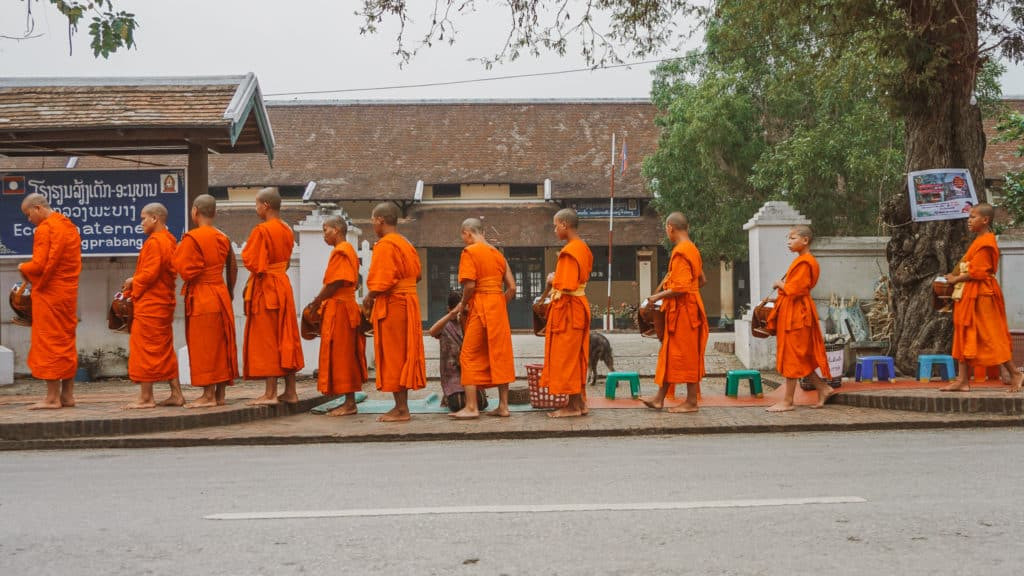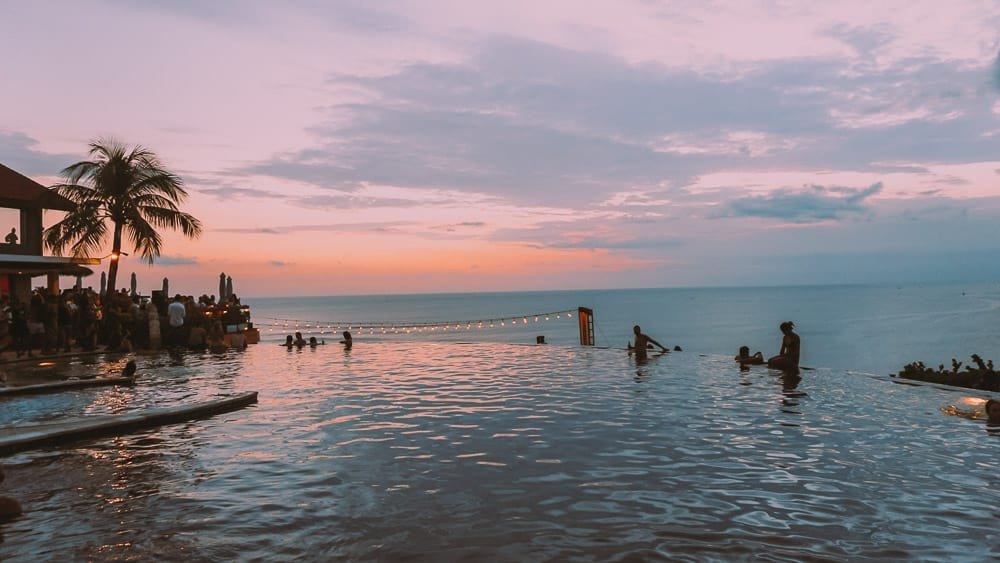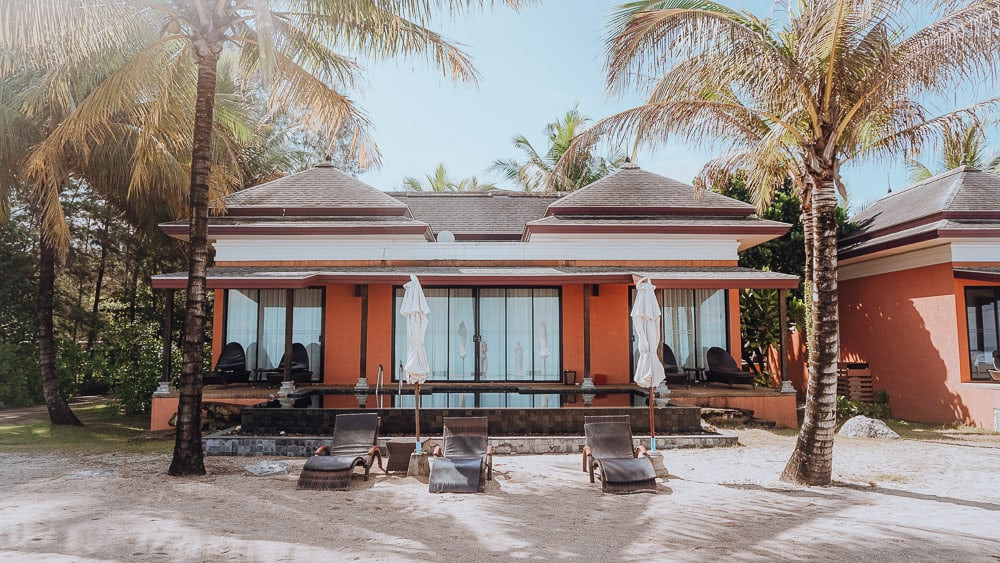Tourism disadvantages, especially in vibrant destinations like Vietnam, can be significant if not managed properly. SIXT.VN offers solutions for sustainable travel, minimizing negative impacts and maximizing positive cultural exchange. By choosing responsible travel options, you can enjoy the beauty of Vietnam while preserving its authenticity and environment, creating unforgettable experiences and promoting conscious travel, eco-tourism, and responsible tourism.
1. What Economic Disadvantages Does Tourism Present?
Tourism can present several economic disadvantages, including over-reliance, low-quality employment, leakage of tourism dollars, and prioritizing tourism over other industries. These factors can create instability and inequality within local economies.
- Over-Reliance on Tourism: Many destinations become heavily dependent on tourism for their economy, making them vulnerable to fluctuations in tourist arrivals due to events like pandemics, natural disasters, or economic downturns. According to the Vietnam National Administration of Tourism, a significant portion of Vietnam’s GDP relies on tourism, highlighting the risk of economic instability if tourism declines.
- Low-Quality Employment: While tourism creates jobs, many are low-paying, seasonal, and offer limited opportunities for career advancement. Managerial positions are often filled by international staff, leaving locals in lower-level roles with little job security. A study by the Institute for Labor Studies found that a substantial number of tourism jobs in Vietnam are temporary and offer minimal benefits.
- Tourism Dollars Leaking Out of Local Economies: A significant portion of tourism revenue doesn’t stay in the local economy due to leakage, where profits go to international companies like airlines and hotel chains. This reduces the economic benefits for local communities. Research from the United Nations World Tourism Organization (UNWTO) indicates that leakage can significantly reduce the economic impact of tourism in developing countries.
- Favored Over Other Industries: Governments may prioritize tourism at the expense of other essential sectors like education, healthcare, and infrastructure, leading to uneven development. Resources are often diverted to enhance tourist areas, neglecting the needs of local communities. A report by the Ministry of Planning and Investment highlights that regions with high tourism concentration sometimes lag in other development areas.
To mitigate these disadvantages, SIXT.VN focuses on promoting sustainable tourism practices that support local businesses, create higher-quality employment, and ensure that tourism revenue benefits the local economy, fostering balanced development and economic resilience.
 disadvantages of tourism neon sign street cambodia
disadvantages of tourism neon sign street cambodia
Tourism districts are often supported by the income from tourism.
2. How Does Over-Reliance on Tourism Affect Destinations?
Over-reliance on tourism can make destinations vulnerable to economic shocks, seasonal variations, and changing tourist preferences, threatening their financial stability. Diversifying the economy and promoting sustainable tourism practices are essential.
- Economic Shocks: Destinations heavily dependent on tourism are highly susceptible to economic shocks such as pandemics, natural disasters, or global recessions. The COVID-19 pandemic, for example, decimated the tourism industry worldwide, causing significant economic hardship for many destinations. A report by the World Bank highlighted the severe economic impact of the pandemic on tourism-dependent economies.
- Seasonal Variations: Many tourist destinations experience peak seasons and off-seasons, leading to fluctuating income and employment levels. This seasonality can create instability for businesses and workers, making it difficult to sustain economic growth year-round. According to statistics from the General Statistics Office of Vietnam, tourist arrivals vary significantly between seasons, impacting local businesses and employment.
- Changing Tourist Preferences: Tourist preferences and trends can change rapidly, leading to shifts in destination popularity. Destinations that fail to adapt to these changes may experience declines in tourist arrivals and revenue. A study by TripAdvisor revealed that evolving tourist expectations require destinations to continuously innovate and offer unique experiences.
SIXT.VN aims to promote diversified tourism offerings, encouraging travelers to explore different regions and participate in various activities throughout the year, reducing the risks associated with over-reliance on specific attractions or seasons, and supporting local businesses.
3. What Are the Social Disadvantages of Tourism?
Tourism can lead to the commodification and erosion of local culture, encourage negative tourist behavior, and damage cultural heritage sites, impacting the social fabric and cultural integrity of destinations.
- Commodification of Culture: Tourism can transform culture into a commodity, where traditions and customs are altered to appeal to tourists. This can lead to inauthentic cultural experiences and the loss of cultural significance. UNESCO emphasizes the importance of preserving cultural heritage and promoting authentic cultural tourism experiences.
- Erosion of Culture: Exposure to different lifestyles through tourism can lead to the erosion of local customs and traditions, especially among younger generations who may adopt foreign behaviors. This can result in the loss of cultural identity and heritage. Research by the Cultural Heritage Administration highlights the need to protect and promote local cultures in the face of globalization and tourism.
- Tourists Behaving Badly: Inappropriate behavior by tourists, such as dressing immodestly, disrespecting local customs, or engaging in disruptive activities, can offend locals and disrupt the community. This can create tension between tourists and residents. A study by the World Tourism Organization (UNWTO) found that responsible tourist behavior is crucial for fostering positive relationships between tourists and host communities.
- Physical Damage to Built Culture and Heritage: High tourist traffic can cause physical damage to historical sites and monuments through erosion, littering, and vandalism. This can lead to the irreversible loss of cultural heritage. The International Council on Monuments and Sites (ICOMOS) works to protect and preserve cultural heritage sites from the negative impacts of tourism.
SIXT.VN promotes cultural sensitivity by providing travelers with information on local customs and etiquette, encouraging responsible behavior and respect for cultural heritage. We also support initiatives that preserve and promote authentic cultural experiences, ensuring that tourism benefits local communities.
 Monks on street in Luang Prabang Laos
Monks on street in Luang Prabang Laos
The customs of the locals can be affected by the presence of tourism.
4. How Does the Commodification of Culture Affect Local Communities?
The commodification of culture can lead to inauthentic cultural experiences, the loss of cultural significance, and the exploitation of local traditions for commercial gain, harming the cultural integrity of local communities.
- Inauthentic Cultural Experiences: When culture is commodified, it is often altered and adapted to appeal to tourists, resulting in staged performances and artificial representations of local traditions. This can mislead tourists and provide a distorted view of the local culture. A report by the Tourism Concern highlights the importance of promoting authentic cultural experiences that reflect the true identity of local communities.
- Loss of Cultural Significance: The commercialization of culture can strip traditions of their original meaning and purpose, reducing them to mere entertainment for tourists. This can lead to the devaluation and eventual loss of cultural heritage. UNESCO emphasizes the need to protect the intangible cultural heritage of communities, including traditions, rituals, and practices.
- Exploitation of Local Traditions: Local traditions and customs may be exploited for commercial gain, with communities receiving little or no benefit from the tourism revenue generated. This can lead to resentment and a sense of cultural exploitation. Fair Trade Tourism promotes ethical tourism practices that ensure local communities benefit from tourism activities.
SIXT.VN partners with local communities to develop tourism experiences that are authentic, sustainable, and respectful of local traditions. We ensure that tourism revenue benefits the community, supporting cultural preservation and economic empowerment.
5. What Environmental Disadvantages Arise From Tourism?
Tourism can result in the intense use of resources, physical damage to natural and marine areas, increased waste and pollution, and the destruction of natural habitats for infrastructure development.
- Intense Use of Resources: Tourism can strain local resources, such as water and energy, especially in areas already facing scarcity. Hotels, resorts, and tourist activities consume significant amounts of water and energy, exacerbating resource shortages. A study by the World Wildlife Fund (WWF) found that tourism can significantly increase water consumption in already water-stressed regions.
- Physical Damage to Natural and Marine Areas: Activities like hiking, snorkeling, and diving can damage fragile ecosystems such as rainforests, coral reefs, and alpine regions. Tourists may unintentionally harm vegetation, disturb wildlife, and damage marine habitats. The International Coral Reef Initiative (ICRI) works to protect coral reefs from the negative impacts of tourism and other threats.
- Increased Waste, Pollution, and Emissions: Tourism generates significant amounts of waste, including litter, sewage, and carbon emissions from transportation. Inadequate waste management infrastructure can lead to pollution of land and water resources. The United Nations Environment Programme (UNEP) emphasizes the need for sustainable waste management practices in the tourism industry.
- Land Use and Infrastructure Development: The construction of hotels, resorts, airports, and other tourism-related infrastructure can lead to deforestation, habitat destruction, and soil erosion. Coastal development can damage marine ecosystems and disrupt natural processes. A report by the International Union for Conservation of Nature (IUCN) highlights the impacts of tourism infrastructure on biodiversity and ecosystem services.
SIXT.VN promotes eco-friendly tourism practices, such as supporting accommodations that conserve water and energy, encouraging responsible waste disposal, and offering tours that minimize environmental impact. We also partner with organizations dedicated to protecting natural areas and promoting sustainable tourism.
 disadvantages of tourism hotel pool over ocean
disadvantages of tourism hotel pool over ocean
Hotels and tourist spots often have pools which use up a lot of water.
6. How Does the Intense Use of Resources Impact Local Communities?
The intense use of resources by the tourism industry can lead to water shortages, energy scarcity, and increased costs for local communities, affecting their quality of life and economic stability.
- Water Shortages: High water consumption by hotels, resorts, and tourist activities can deplete local water supplies, leading to shortages for residents and agriculture. This can exacerbate existing water scarcity issues and create competition for limited resources. The Water Resources Management Agency warns that over-tourism can deplete water resources in many destinations.
- Energy Scarcity: The energy-intensive operations of hotels and resorts can strain local energy grids, leading to power outages and increased energy costs for residents. This can affect essential services and economic activities. The Energy Conservation Center reports that tourism contributes significantly to energy consumption in Southeast Asia.
- Increased Costs: The increased demand for resources due to tourism can drive up prices for water, energy, and other essential goods, making them less affordable for local communities. This can disproportionately affect low-income households and exacerbate economic inequalities. A study by the World Resources Institute (WRI) shows that tourism-related resource depletion can raise the cost of living for local residents.
SIXT.VN supports accommodations and tour operators that implement resource-efficient practices, such as water conservation measures and renewable energy sources. We also educate travelers about the importance of responsible resource consumption and encourage them to conserve water and energy during their travels.
7. What Can Be Done to Mitigate the Economic Disadvantages of Tourism?
To mitigate the economic Disadvantages Of Tourism, destinations can diversify their economies, invest in education and training for local workers, implement policies to reduce leakage, and prioritize community development.
- Diversifying the Economy: Reducing reliance on tourism by developing other sectors, such as agriculture, manufacturing, and technology, can buffer the economy against fluctuations in tourist arrivals. This creates a more resilient and sustainable economic base. The Ministry of Economic Development promotes economic diversification strategies for tourism-dependent regions.
- Investing in Education and Training: Providing education and training opportunities for local workers can help them access higher-paying jobs in the tourism industry and other sectors. This empowers communities and reduces reliance on low-wage tourism jobs. The Ministry of Education and Training offers vocational programs to enhance skills and employability in tourism and related fields.
- Implementing Policies to Reduce Leakage: Governments can implement policies that encourage international companies to reinvest profits locally, support local businesses, and promote fair trade practices. This ensures that a greater share of tourism revenue benefits the local economy. The State Bank of Vietnam regulates financial flows to minimize leakage and promote local investment.
- Prioritizing Community Development: Investing in infrastructure, healthcare, and education can improve the quality of life for local residents and create a more equitable distribution of tourism benefits. This ensures that tourism contributes to overall community well-being. The Ministry of Health and the Ministry of Education and Training allocate resources to improve healthcare and education services in tourism-dependent areas.
SIXT.VN supports local businesses and community-based tourism initiatives that generate income and employment for residents. We also advocate for policies that promote fair and equitable tourism practices, ensuring that tourism benefits local communities.
8. How Can Destinations Preserve Their Culture in the Face of Tourism?
Destinations can preserve their culture by promoting authentic cultural experiences, protecting cultural heritage sites, educating tourists about local customs, and involving local communities in tourism planning and management.
- Promoting Authentic Cultural Experiences: Encouraging tourists to engage with local culture in a respectful and meaningful way can help preserve traditions and customs. This includes supporting cultural festivals, workshops, and homestay programs that offer genuine cultural immersion. The Vietnam National Administration of Tourism promotes cultural tourism products that showcase the country’s rich heritage.
- Protecting Cultural Heritage Sites: Implementing measures to protect historical sites and monuments from damage and degradation can ensure that cultural heritage is preserved for future generations. This includes regulating tourist access, enforcing preservation laws, and investing in restoration and maintenance. The Ministry of Culture, Sports and Tourism oversees the protection and preservation of cultural heritage sites.
- Educating Tourists About Local Customs: Providing tourists with information about local customs, traditions, and etiquette can help them behave respectfully and avoid causing offense. This includes offering cultural sensitivity training, distributing informational materials, and promoting responsible tourism practices. The Vietnam Tourism Association provides guidelines for tourists on responsible behavior and cultural sensitivity.
- Involving Local Communities in Tourism Planning and Management: Engaging local communities in the planning and management of tourism can ensure that their voices are heard and that their interests are protected. This includes creating community-based tourism enterprises, involving residents in decision-making processes, and ensuring that tourism benefits local communities. The Ministry of Planning and Investment promotes community participation in tourism development projects.
SIXT.VN partners with local communities to develop tourism experiences that are authentic, sustainable, and respectful of local culture. We also educate travelers about local customs and traditions, encouraging responsible behavior and cultural sensitivity.
9. What Are Some Eco-Friendly Tourism Practices?
Eco-friendly tourism practices include supporting accommodations that conserve resources, reducing waste and pollution, using sustainable transportation, and protecting natural habitats.
- Supporting Accommodations That Conserve Resources: Choosing hotels and resorts that implement water and energy conservation measures can reduce the environmental impact of tourism. This includes using low-flow fixtures, energy-efficient appliances, and renewable energy sources. The Green Hotel Association certifies accommodations that meet environmental standards.
- Reducing Waste and Pollution: Minimizing waste generation, recycling materials, and properly disposing of waste can reduce pollution and protect natural resources. This includes avoiding single-use plastics, using reusable containers, and supporting waste management initiatives. Zero Waste International Alliance promotes waste reduction and recycling practices.
- Using Sustainable Transportation: Opting for public transportation, biking, or walking instead of driving can reduce carbon emissions and traffic congestion. This includes using trains, buses, and rental bicycles to explore destinations. The Institute for Transportation and Development Policy promotes sustainable transportation solutions.
- Protecting Natural Habitats: Avoiding activities that harm natural areas, such as hiking off-trail, disturbing wildlife, and damaging coral reefs, can help protect biodiversity and ecosystem services. This includes followingLeave No Trace principles, respecting wildlife, and supporting conservation efforts. The Nature Conservancy works to protect natural habitats and biodiversity.
SIXT.VN promotes eco-friendly tourism practices by partnering with accommodations and tour operators that prioritize sustainability. We also educate travelers about responsible travel options and encourage them to minimize their environmental impact.
 disadvantages of tourism beach front villa with palm trees
disadvantages of tourism beach front villa with palm trees
The location of resorts can sometimes cause problems to the environment.
10. How Can Travelers Minimize Their Negative Impact While Traveling?
Travelers can minimize their negative impact by choosing sustainable accommodations, respecting local customs, reducing waste, using public transportation, and supporting local businesses.
- Choosing Sustainable Accommodations: Selecting hotels and resorts that implement eco-friendly practices, such as water and energy conservation, waste reduction, and responsible sourcing, can minimize the environmental impact of your stay. Look for certifications like Green Key or LEED. The Global Sustainable Tourism Council (GSTC) provides criteria for sustainable accommodations.
- Respecting Local Customs: Learning about local customs, traditions, and etiquette can help you behave respectfully and avoid causing offense. This includes dressing modestly, asking permission before taking photos, and avoiding disrespectful behavior. The Tourism Concern offers resources on responsible travel and cultural sensitivity.
- Reducing Waste: Minimizing waste generation, recycling materials, and properly disposing of waste can reduce pollution and protect natural resources. This includes bringing reusable water bottles, shopping bags, and containers, and avoiding single-use plastics. The Zero Waste International Alliance promotes waste reduction and recycling practices.
- Using Public Transportation: Opting for public transportation, biking, or walking instead of driving can reduce carbon emissions and traffic congestion. This includes using trains, buses, and rental bicycles to explore destinations. The Institute for Transportation and Development Policy promotes sustainable transportation solutions.
- Supporting Local Businesses: Purchasing goods and services from local businesses can help support the local economy and ensure that tourism revenue benefits the community. This includes eating at local restaurants, shopping at local markets, and hiring local guides. Fair Trade Tourism promotes ethical tourism practices that benefit local communities.
SIXT.VN offers a range of services to help travelers minimize their negative impact, including sustainable transportation options, eco-friendly accommodations, and tours that support local communities and protect the environment. Contact us at Address: 260 Cau Giay, Hanoi, Vietnam. Hotline/Whatsapp: +84 986 244 358. Website: SIXT.VN for sustainable travel solutions.
FAQ Section
1. What is tourism leakage and how does it affect local economies?
Tourism leakage refers to the economic benefits that do not remain within the host country, often due to profits going to international companies. It reduces the positive impact on local economies.
2. How does tourism contribute to environmental pollution?
Tourism leads to pollution through increased waste generation, carbon emissions from transportation, and damage to natural habitats due to infrastructure development.
3. What are some examples of the commodification of culture in tourism?
Examples include staged cultural performances modified for tourists, the sale of inauthentic souvenirs, and the exploitation of local traditions for commercial gain.
4. How can tourists be more respectful of local customs?
Tourists can be more respectful by learning about local traditions, dressing modestly, asking permission before taking photos, and avoiding behaviors that may cause offense.
5. What is sustainable tourism and why is it important?
Sustainable tourism aims to minimize negative impacts and maximize positive contributions to the environment, economy, and local communities, ensuring tourism benefits all stakeholders.
6. How can local communities benefit from tourism?
Local communities can benefit through job creation, economic development, cultural preservation, and improved infrastructure when tourism is managed sustainably.
7. What role does transportation play in the environmental impact of tourism?
Transportation, particularly air travel, contributes significantly to carbon emissions, which contribute to climate change. Choosing more sustainable transportation options is crucial.
8. How does infrastructure development for tourism affect natural habitats?
Infrastructure development, such as building hotels and resorts, can lead to deforestation, habitat destruction, and soil erosion, harming biodiversity.
9. What are some eco-friendly accommodations practices?
Eco-friendly practices include water conservation, energy efficiency, waste reduction, and using sustainable materials to minimize environmental impact.
10. How can travelers support local businesses while traveling?
Travelers can support local businesses by eating at local restaurants, shopping at local markets, hiring local guides, and purchasing locally made products.



